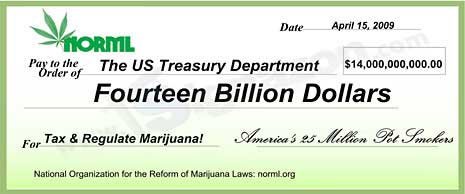 It’s April 15, and apparently some people are buying bags of a different kind of tea (Pekoe, not sensi) and waving them around, or mailing them, or something, in some kind of FOXnews-run protest against taxes that don’t exist yet… and gay abortion, I think — it’s been getting kind of confusing (it seemed to start as one thing and get co-opted so many times that I’m not sure anyone knows what it means.)
It’s April 15, and apparently some people are buying bags of a different kind of tea (Pekoe, not sensi) and waving them around, or mailing them, or something, in some kind of FOXnews-run protest against taxes that don’t exist yet… and gay abortion, I think — it’s been getting kind of confusing (it seemed to start as one thing and get co-opted so many times that I’m not sure anyone knows what it means.)
Also apparently, there’s some teabagging going on, though people seem to be still learning the term.
In the meantime, there are a group of citizens that are begging the U.S. government to let them pay taxes, and, in a time of economic disaster, the government laughs at them.
So today, all they’ll get from that group is a mock check.

- DrugWarRant.com, the longest running single-issue blog devoted to drug policy
Join us on Pete's couch.
 Send comments, tips,
Send comments, tips,
and suggestions to: Recent Comments
Servetus on It isn’t about the drugs.: “Pete Hegseth is being blamed for committing three war crimes, including perfidy in the bombing of boats off the coast…” Jan 14, 20:38
Servetus on Marijuana prohibition and the origins of totalitarianism: “CBD treats fetal alcohol disorder in laboratory studies on mice: 14-Jan-2026 – Cannabidiol (CBD) could become a therapeutic tool to…” Jan 14, 20:25
Servetus on Marijuana prohibition and the origins of totalitarianism: “Gene therapy alternative for chronic pain might replace use of opioids: 7-Jan-2026 –Philadelphia—A preclinical study uncovered a new gene therapy…” Jan 11, 10:57
Servetus on Marijuana prohibition and the origins of totalitarianism: “Yoga as an adjunct to chemotherapy can treat opioid withdrawal: 7-Jan-2026 – In this randomized clinical trial, yoga significantly accelerated…” Jan 11, 10:27
Servetus on Marijuana prohibition and the origins of totalitarianism: “Modifications of chemical scaffolds associated with psychedelic compounds can be achieved using ultraviolet light: 7-Jan-2026 — UC Davis researchers have…” Jan 11, 09:46
Paul Revere on It isn’t about the drugs.: “Sure, it’s regime change—now let’s take Iran, Cuba, Colombia, Mexico. All sterling examples of a self-determination for indigenous people. Also,…” Jan 4, 06:14
Servetus on It isn’t about the drugs.: “Colombian fisherman dies in a U.S. boat strike, no evidence of drug smuggling. Hegseth blamed. Family files a formal complaint.…” Dec 29, 16:01
Servetus on It isn’t about the drugs.: “Boat debris in U.S. Caribbean attack on boat by U.S. contained packaging with traces of marijuana, NY Times: Dec 29,…” Dec 29, 15:54
Pages
- About
- Articles
- A Day at the Museum
- A story for Thanksgiving (Isidro and Teresa Aviles)
- Andrea Barthwell, caught red-handed
- Andrea Barthwell, Snake Oil Salesman
- Bong Hits 4 Jesus – Supreme Court Case
- DEA Bad Girl Michele Leonhart
- Deep Thoughts About the Drug War
- Drug War Victims
- Drug War Videos
- Drug WarRant Joins SOPA, PIPA Protest
- Hammer Down, Pop Up
- If I were Contrarian-King of the United States
- Increase in Burger Abuse Seen
- Irvin Rosenfeld and the Compassionate IND — Medical Marijuana Proof and Government Lies
- Karen Tandy and the DEA (Can Congress Get a Clue?)
- Len Bias – the death that ushered in two decades of destruction
- Mother and Son
- Patriot Act, Victory Act, Despot Act
- Petition for Correction under the ONDCP Information Quality Guidelines
- Raich v. Ashcroft
- Rand and American Enterprise Institute Studies – Indictments of Federal Drug Policy
- the Drug Czar is Required by Law to Lie
- Treatment Statistics
- Who’s Who in Drug Prohibition
- Why is Marijuana Illegal?
January 2026 M T W T F S S 1 2 3 4 5 6 7 8 9 10 11 12 13 14 15 16 17 18 19 20 21 22 23 24 25 26 27 28 29 30 31 Archives
Authors
January 2026 M T W T F S S 1 2 3 4 5 6 7 8 9 10 11 12 13 14 15 16 17 18 19 20 21 22 23 24 25 26 27 28 29 30 31

